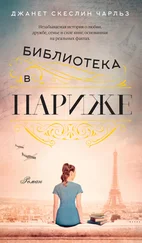“Are you hungry?” He presented me with an Honoré pastry box. Opening it, I savored the buttery aroma of the financier before taking a bite. The cake came apart in my mouth; I closed my eyes and chewed slowly.
“ Ça va ?” he asked. “The first day, and you’re already exhausted. You don’t have one of your headaches, do you?”
“I’m fine, Papa.”
“At your age,” he said, his tone tender, “Maman and I had just survived the war and were mourning the loss of friends and family. You’re only twenty—we want you to enjoy your youth, find a beau, go to dances, not slave away in some book factory.”
“Papa, please, not tonight…” My whole life, my parents’ talk of war had ricocheted around me—tanks and trenches, mustard gas and mutilated soldiers.
“All right, we’ll talk about something else. Now, I know you work Sundays, so I’ve invited a fellow for dinner on Wednesday. This one says he reads!”
CHAPTER 6
Odile
EACH MORNING BEFORE the Library opened, I paid a visit to a different department. Monday, I had an appointment in accounting, where Miss Wedd, the bookkeeper, was known for her keen mind and scrumptious scones. When she leaned over her ledger, I saw three pencils tucked in her brown bun. After she explained the expenditure lines—everything from coal and firewood to books and glue for bindings, I asked if I could interview her. I had an idea for the monthly newsletter Miss Reeder had assigned to me. In addition to the usual scholarly reviews and the list of books that had been checked out the most, I wanted to include something more personal about subscribers and staff.
“What kind of reader are you?” I asked, notepad in hand.
“I liked maths in school. Numbers always made more sense than people. That’s why my favorite books are by the ancient Greeks: Pythagoras and Heraclitus. We’re still using their work, their ideas.
“I’m not like Boris and Miss Reeder. I’m not good with the public.” She slid a fourth pencil into her hair. “But I hope that in some small way, my contribution here matters. For over a decade, I’ve filled entire books with tales of generous donors and knowledgeable staff who work long hours, only I write vertical columns instead of horizontal lines.”
Interviewing her was like watching a rose bloom: she opened up, the petals of her cheeks pink with passion. “Thank you,” I said, glad I chose her. “Readers will love your answers, and I’m eager to discover Heraclitus.”
I was also enjoying getting to know my colleagues. Tuesday, I spent time with Peter-the-shelver, the only one tall enough to reach the top ledges. By arranging the books on the cart by their call numbers, he shelved ten books in the time I replaced two. He had the fine physique of a boxer, but when matronly Madame Frot’s foghorn of a voice blared through the stacks, “Peter dear, oh, Peter,” he dove into the cloakroom to avoid the amorous subscriber.
Wednesday, I went to the children’s room, where short bookshelves bordered the walls, and tiny tables and chairs were grouped in front of the crackling fire. Though I’d never met the children’s librarian, Muriel Joubert, I felt like I knew her, because the neat script of her signature appeared on each of the cards of the books I checked out. In the last week alone, she beat me to My Ántonia , Belinda , and The Interesting Narrative of the Life of Olaudah Equiano . Given all she’d read, I’d pictured a white-haired lady. Instead, I found a girl my age observing me with keen violet eyes. Even with the black braid crowning her head, she didn’t measure five feet.
“Mademoiselle Joubert?” I asked.
She told me to call her Bitsi, that everyone did, ever since a subscriber from Texas had taken one look at her and proclaimed, “Why, you’re just an itsy-bitsy thing!” She said she’d wanted to make my acquaintance ever since she’d noticed my name scrawled on the cards of her favorite novels.
“We’re bookmates,” she said, in the decisive tone one would assert “the sky is blue,” or “Paris is the best city in the world.” I was skeptical about soulmates, but could believe in bookmates, two beings bound by a passion for reading.
She proffered The Brothers Karamazov . “I wept when I finished.” Her voice swelled with emotion. “First because I was happy to have read it. Second because the story was so moving. Third because I’ll never again experience the discovery of it.”
“Dostoevsky’s my favorite dead author,” I said.
“Mine too. Who’s your favorite live one?”
“Zora Neale Hurston. The first time I checked out Their Eyes Were Watching God , I gorged on the chapters, wolfing down the words. I needed to find out what happened next—Would Janie marry the wrong man? Would Tea Cake live up to my hopes for Janie? Then, with a handful of pages left, I started to dread the fact that this world that I loved was coming to an end. I wasn’t ready to say goodbye. I read slowly, just savoring the scenes.”
She nodded. “I do the same, to make each page last as long as possible.”
“I finished the novel in four days, but kept it the full two weeks. On the due date, I placed it on the circulation desk, but my hand remained on the cover, not ready to let go. Boris found me three other books by Miss Hurston.
“I gorged on those, too, like chocolate cake, like love. I cared so deeply about the characters that they became real. I felt I knew Janie, that one day she might enter the Library and invite me for coffee.”
“I feel that way about my favorite characters, too,” Bitsi said.
A mother approached. “My son chose these”—she held up two storybooks—“but they appear to be… well thumbed.”
“They’re well loved,” Bitsi replied. “If you prefer, we have brand-new books on our ‘latest arrivals’ shelf.”
When Bitsi mouthed, “Back to work,” and led them to the display, I peeked into the reference room, hoping to see Paul, but he wasn’t there.
Disappointed, I continued to my desk, where a subscriber tapped her foot, wanting her Harper’s Bazaar . “Where have you been?” Madame Simon scolded.
When I handed her the latest issue, still in its brown wrapping paper, she softened, confiding that at home she was last in line. Dentures wiggling as she spoke, she explained that everything she owned—the matted mink from a dead aunt, the false teeth that had belonged to her mother-in-law—had served someone else. But here, she was first to take pleasure in fashion, though there was nothing she could afford. “Or fit into,” she lamented, her beefy hand skimming her stout figure. She settled in next to Professor Cohen.
Observing Boris, Madame said, “They say that during the Russian Revolution, his family fortune was lost. He had to start over here in France. Penniless as a pauper.”
“Whatever his situation, he’s a prince of a man,” the professor said.
“His wife’s the princess, or was. Now she’s a cashier. How the mighty have fallen!”
“Spoken by someone who’s never had to earn her own keep.”
Clara de Chambrun strode past, laden with papers. “And speaking of nobility,” Madame snickered, “there’s the countess from Ohio.”
“You’ve a bee in your beret today, and quite a sting. Clara’s an excellent trustee, knows how to raise funds. We wouldn’t be sitting here if it weren’t for her. Since you’re enamored by fashion, I’ll say this: snark isn’t a good look on anyone.”
CHAPTER 7
Margaret
PARIS, MARCH 1939
PATTING HER MORNING pearls nervously, Margaret hesitated at the threshold of the American Library. It was as quiet as a cathedral, and she wasn’t sure she should enter. Margaret certainly wasn’t American, nor was she interested in books. But after four months in Paris, she was desperate for English in any form. The French language was a nasal bog that she had to wade through in the shops, the hairdresser’s, and the bakery. No one in those places spoke English. Reduced to sign language, she pointed and held up a finger to signal she wanted one croissant. She nodded to show she grasped the meaning; she shrugged to show she didn’t.
Читать дальше
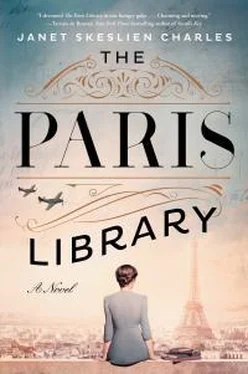
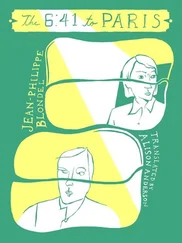

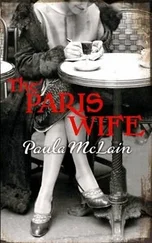


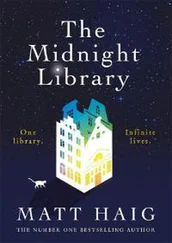
![Джанет Скеслин Чарльз - Библиотека в Париже [litres]](/books/391555/dzhanet-skeslin-charlz-biblioteka-v-parizhe-litres-thumb.webp)
